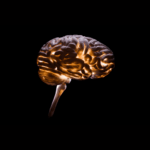
The Epidemic on the Road
Motor vehicle accidents are a common yet often overlooked cause of death – and the numbers are rising.

Small steps toward improving research reliability
Unfortunately, scientific publishing is riddled with myriad problems, many of which likely can’t be solved without completely rethinking current processes and the underlying research culture. However, there are still small, short-term changes that are relatively easy to implement and can yield meaningful improvements in research integrity.

Adding context to the Alzheimer’s disease research fraud charges
This past July, a news article published in Science sent shockwaves through the scientific community when it reported that one of the most influential and frequently-cited publications in Alzheimer’s disease (AD) research was evidently based on fraud.

Prioritizing “real friends” over “deal friends”
According to a May 2021 survey, Americans report having fewer close friendships than they did 30 years ago. But according to a recent conversation I had with author and social scientist Arthur Brooks, friendship is one of the key factors in finding and maintaining happiness as we age.

Different effects of fat- vs. carbohydrate-restriction on neural reward signaling
“A calorie is a calorie” seems like a simple and obvious statement. But do different macronutrients vary in their ability to drive obesity? A recent study by Dr. Kevin Hall and colleagues provides new clues – and likely new fodder for debate.

Vitamin D(éjà vu): new study, same old problems
For vitamin D supplementation to have any effect relative to placebo, it needs to be increasing the body’s supply of vitamin D, and if it doesn’t, then the treatment and placebo groups are effectively identical. So did the researchers achieve a difference in vitamin D levels over the course of the study?

First Case of Human PCSK9 Gene-Editing
Ultimately, the long-term benefits of lowering apoB through a one-time treatment may make this not only a viable future option, but potentially an intervention that could change preventive cardiovascular medicine.

Avoiding Injury Part II: Grip Strength
Not enough can be said about the importance of grip strength as you age. It’s one of the strongest physical associations with longer life.

Avoiding Injury Part I: Eccentric Strength
Accidental injury is among the leading causes of death in the developed world, and even when an injury itself is not directly responsible for ending one’s life, the associated debilitation can hasten the onset and progression of other health concerns.

And the 2050 World Cup champions are… robots?
What we can learn from the awkward, soccer-playing robots of RoboCup?
